People who quit smoking may reduce or halt the thinning of the brain’s cortex. A new study has found that the cortex of the brain, which plays a key role in memory, attention, thought and language, is known to thin with age and this feature is used as one of the biological markers for cognitive […]
Tag: neurology
How eating salt reprograms the brain
Researchers have described a mechanism by which high salt intake can lead to higher blood pressure. Using rats, they found that salt causes biochemical changes in neurons that release vasopressin, a hormone that increases arterial blood pressure. Salt disables the natural safety mechanism that prevents vasopressin from being released in the blood, thus allowing blood […]
For sleeping children, quality is more important than quantity
For young children, the quality of sleep may be more important than the duration of sleep when it comes it academic performance, according to a new study. The researchers found that a high percentage of time in bed spent sleeping influenced positively a child’s grades in math, English, and French as a second language, while […]
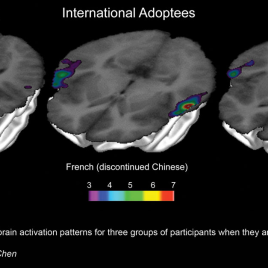
Mapping unconcious memories of a lost language
A new study shows that our brains light up when we hear a language we once knew, even if we no longer understand it. The study used functional magnetic resonance imaging (fMRI) to study the brains of three groups of children: those who spoke only French, those who were bilingual in French and Chinese, and […]
Why anesthesia may cause memory problems
After surgery using a general anesthetic, up to a third of patients experience memory problems for months afterward and a new study helps explain why. Many anesthetics work by binding to specific receptors (GABA A receptors) in the brain and increasing the function of these receptors, leading to drowsiness and memory loss. The new study shows […]
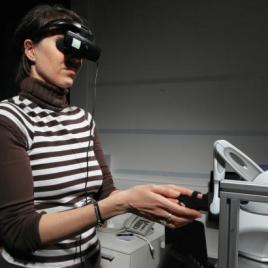
This robot makes you feel like there’s someone behind you
A new study sheds light on the mechanisms underlying the “feeling of presence” phenomenon, where people feel like there is a presence with them in a room even though they are alone. Scientists usually attribute this feeling to medical conditions such epilepsy, stroke, migraine and tumors. Researchers have now devised a robot capable of giving […]
‘Meaningful’ mistakes help learning at any age
A new study suggests that trial-and-error learning benefits memory in both young and old people, but only when errors are meaningfully related to the right answer. The study tracked 65 younger (average age 22) and 65 older (average age 72) people who tried to memorize lists of words. Making wrong guesses when given a clue […]
Gamers can be quick learners
A new study suggests that while people who play video games don’t necessarily have better sensorimotor skills than non-gamers, they are significantly faster at learning sensorimotor tasks. A group of 18 gamers and 18 non-gamers were asked to complete a task that involved keeping a cursor in the centre of a moving target. When the […]

Electric knifefish signal their intentions
Electric fields emitted by knifefish can be used to predict their movements a few seconds before they occur, making these creatures an ideal model organism to study voluntary decision-making. Electric knifefish are nocturnal and live in very murky water, so they feel their way by sensing distortions in an electric field that they emit using […]
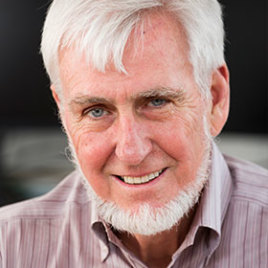
McGill Alumnus wins Nobel Prize
McGill graduate John O’Keefe won the 2014 Nobel prize in medicine for his discovery in 1974 of brain cells that makes it possible for us to orient ourselves, acting like inner-GPS. Professor O’Keefe earned his phD at McGill in 1967 in physiological psychology. In 1971 O’Keefe was part of a team that discovered a type of […]
How preschoolers choose who to trust
A new study indicates precisely when children begin to use logic instead of emotion to judge how trustworthy someone is. Children four years old and younger tend to believe information provided by a confident adults much more readily than adults who are hesitant. However, the study showed that beginning around age five, children increasingly trust […]
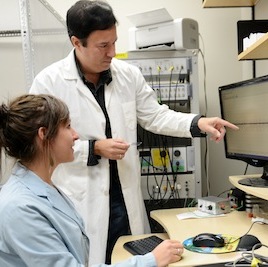
The highs and lows of marijuana use
A new study helps explain why the same drug can have opposite effects at different doses. Using a drug that binds to cannabinoid receptors in the brain – the same ones that are activated by cannabis – researchers showed the precise pathway by which low doses stimulate the brain’s dopamine system, which can lead to […]
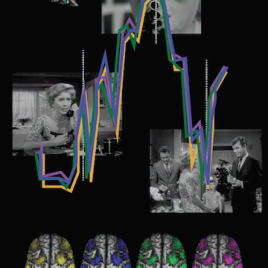
‘Vegetative’ patient follows the plot of an Hitchcock movie
Some patients thought to be in a vegetative state can have conscious experiences similar to healthy people, a new study shows. Researchers used fMRI to record the brain activity of 2 brain-injured patients and 12 healthy participants while they watched a 8-minute clip of an Alfred Hitchcock movie. One of the brain-injured patients, a man […]
Long term use of pills for anxiety and sleep problems and Alzheimer’s 
Prolonged use of benzodiazepines, drugs useful to treat anxiety and insomnia, is linked to higher risks of developing Alzheimer’s disease, a new study indicates. Researchers looked at the benzodiazepine drug use in 1,796 elderly patients suffering from Alzheimer’s disease living in Quebec and compared them to a control group of elderly without diagnosed cognitive problems. They […]
Lower risk of cerebral palsy among immigrant children
A new study shows that babies born in Ontario from immigrant mothers have a 23% lower risk of cerebral palsy (CP), a common motor disability that appears at age 4 and for which there is no cure. The study followed all single births in Ontario from 2002 to 2008. The rate of CP among non-immigrant […]
Gene variant reduces risk of Alzheimer’s disease
A new study shows that a particular gene variation is associated with a lower risk of developing Alzheimer’s and a delay in the onset of symptoms. The study analyzed the brains of 800 Quebecers and found that a variant of a gene carried by about a quarter of the population is associated with a 50% […]